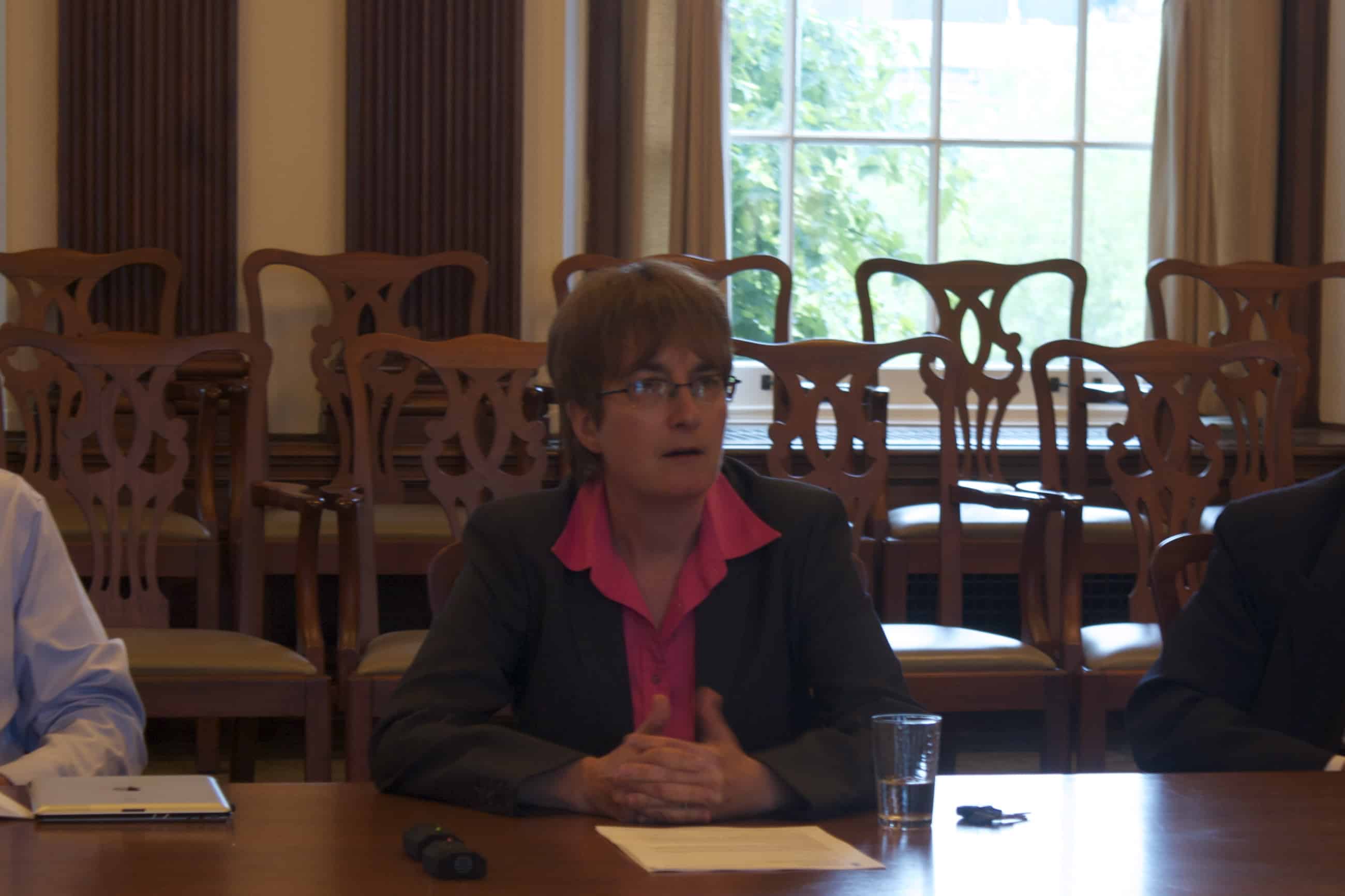Update (June 8, 2013): Brian Langille flew in from Nova Scotia to facilitate the mediation Thursday. The UTSU was represented at the meeting by president Munib Sajjad, executive director Sandy Hudson, and four of the five vice-presidents. EngSoc, VUSAC, and the TCM each sent one representative. The mediation lasted almost seven hours and covered a myriad of topics, from electoral reform to possible mechanisms for resolving the fee diversion question. No formal agreement was reached.
Prior to the mediation session, Ben Crase, co-head of Trinity College, sent a letter to Sajjad outlining Trinity’s position that UTSU’s by-laws should be reformed so that it recognizes divisional societies and the referenda they may hold to leave the organization. It is unclear whether EngSoc and VUSAC share this position. In the past the three student societies, particularly Trinity and EngSoc have collaborated on, and often sent identical, letters to the union.
The special informational session of the Governing Council will be held on Monday, June 10 at 11 am in Council Chambers. At this meeting student leaders will have the opportunity to explain their positions to the Governing Council, but Governing Council will not have the opportunity to vote on anything at the meeting.
Brian Langille, former interim Dean of the Law Faculty, will mediate between UTSU, EngSoc, and the TCM on June 6. Langille’s appointment was announced by provost Cheryl Misak at the contentious University Affairs Board meeting on May 28. Fee diversion was not on the agenda for the meeting. Misak did make a brief statement, reinforcing the administration’s position that the dispute should be, if at all possible, resolved by the student societies without administration involvement.
The location and format of the June 6 meeting between the three societies still remains unclear. Another meeting, originally scheduled May 30, has been cancelled due to scheduling difficulties.
Ben Crase, co-head of Trinity College, stated that a document would be released on Monday, June 3 detailing Trinity’s stance with regards to recent events. Legal council is currently reviewing the document.
Langille is a lawyer and professor with extensive experience in settling labour disputes. Misak describes him as an impartial figure who “probably doesn’t even have an opinion on this issue of fee diversion.” Langille has also been an advisor to provincial and federal governments on matters of labour law and served on Governing Council from 1994-2004.
Misak also reaffirmed that the administration cannot divert fees from one divisional society to another society — a concern she had already highlighted in a letter sent last Friday to TCM, EngSoc, and UTSU.
“This whole stance now on who has the jurisdiction was never clear to anyone, which is troubling — although the Provost said that she can’t divert fees, she could just raise for TCM and EngSoc fee and eliminate the UTSU fee — so currently, it seems like fee diversion can’t happen unless the Provost agrees it happens.” said Aidan Fishman, a student governor who also sits on UAB.
It remains unclear what room there is for compromise. UTSU has maintained they have no interest in having any of their members’ fees diverted. EngSoc and TCM have repeatedly stated they no longer feel internal reform is possible, and the only possible recourse is to divert fees from UTSU.
Governing Council is scheduled to hold a special informational session after June 6 but before the June 26 Governing Council meeting. According to Elizabeth Vosburgh, chair of UAB, the date for that meeting has not been decided, and will depend on what happens at the mediation session on June 6.


